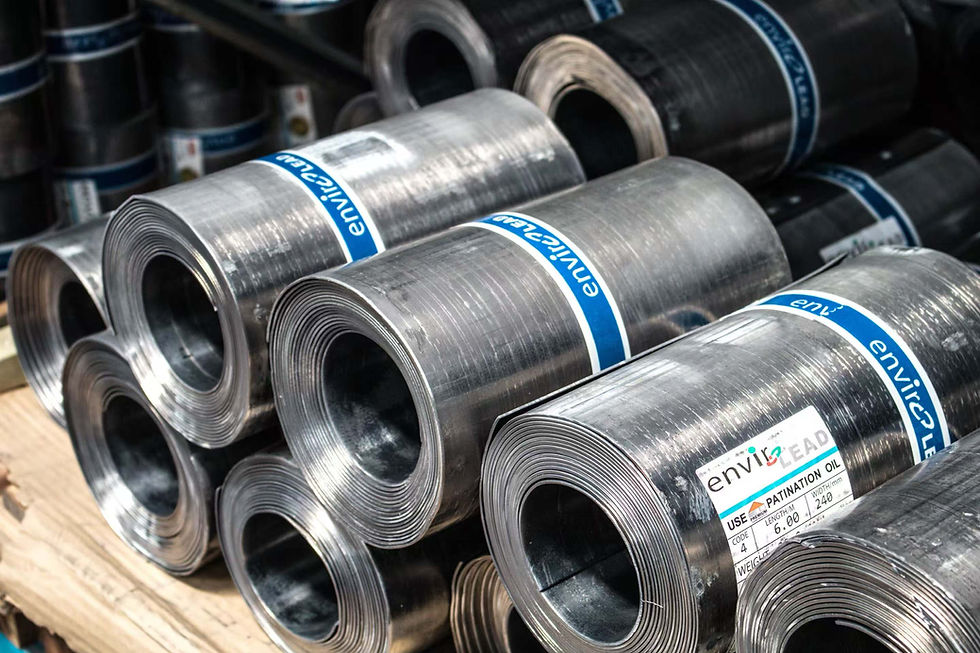How to Ensure Steel Quality & Specification Compliance
- iamssyuan1017
- Aug 13, 2025
- 3 min read
When it comes to importing steel from China, maintaining high standards for steel quality and specification compliance is vital. Given the complexities of global trade and diverse quality perceptions, buyers can face significant challenges. SteelGuard, a leading anti-fraud service provider, advocates for buyers to adopt best practices to navigate these challenges effectively. By following a structured approach, buyers can mitigate risks and ensure the integrity of their steel procurement processes.
Understanding the Importance of Steel Quality
Steel quality is the backbone of construction and manufacturing. Poor-quality steel can lead to structural failures, increased cost overruns, and long-term liabilities. For buyers, understanding the specifications of the steel they are sourcing is imperative. Here are the key aspects to consider:
Material Properties: Familiarize yourself with the required properties of the steel, such as tensile strength, corrosion resistance, and ductility.
Standards and Certifications: Research national and international standards (like ASTM or ISO) pertinent to the type of steel you are sourcing.
"Buyers should prioritize specifications like tensile strength and corrosion resistance to differentiate quality."

Step-by-Step Guide to Ensure Steel Quality & Specification Compliance
1. Conduct Thorough Supplier Background Checks
Before even approaching procurement, the first step involves understanding your suppliers.
Check Company Background: Verify the incorporation and existing operational history of the supplier. Platforms like the China National Corporation for Import and Export offer valuable resources.
Online Reviews: Look for reviews or testimonials from other clients. Platforms such as Alibaba and Global Sources can also provide feedback on suppliers.
2. Define Clear Specifications in Contracts
Once you’ve vetted a supplier, the next step is to ensure that your specifications are clearly articulated in the contracts.
Specification Clarity: Use precise language regarding the required types of steel, dimensions, standards, and tolerances.
Inclusion of Penalties: Outline what penalties exist if specifications are not met, safeguarding your investment.

How to Ensure Steel Quality & Specification Compliance
3. Implement Third-Party Inspection Services
Utilizing third-party inspection services becomes crucial. This step acts as a safety net to catch discrepancies before the steel reaches you.
Inspection Scheduling: Schedule inspections at various stages of production, such as raw material testing, fabrication, and final inspection.
Key Inspection Focus: Make sure that the inspections probe for chemical composition, mechanical properties, and dimensional accuracy.
4. Conduct On-Site Verification
If possible, conducting on-site verification can provide profound insights into the manufacturing process.
Visit Facilities: Examine the equipment used and the working conditions of the factory. This can reveal much about the potential quality of the output.
Engagement with Personnel: Talk to engineers and workers about the processes and materials they use. Their expertise can validate your perceptions of the supplier.

5. Establish Ongoing Monitoring and Quality Assurance
After implementing initial checks, understanding that quality assurance is an ongoing effort is crucial.
Regular Audits: Schedule periodic audits of supplier practices to ensure compliance with specifications.
Post-Delivery Testing: Conduct testing upon delivery to verify that the steel received meets the agreed standards and compositions.
The Role of Technology in Quality Compliance
Advancements in technology play a significant role in ensuring steel quality and specification compliance. Utilize tools such as:
Quality Management Systems: Software can help in tracking compliance metrics effectively.
Blockchain for Transparency: Some firms are implementing blockchain to provide an immutable record of transactions and specifications.
Relying on these technologies not only boosts efficiency but also reduces the scope for human error—ensuring your procurement is as seamless as possible.
Final Thoughts on Steel Quality and Specification Compliance
Ensuring steel quality and specification compliance is not just a matter of safety and legality—it’s about building credibility and trust in your procurement practices. By rigorously following a structured approach and leveraging resources from SteelGuard, you can minimize your risks and protect your investment.
Integrity and compliance in the procurement of steel are paramount to successful operations. If you are looking to streamline your steel sourcing processes, ensure compliance, and avoid fraud in your dealings, contact us today for further support.
Your success in steel procurement begins with informed choices and reliable partners. Don't leave it to chance—let's build a robust procurement strategy together!




Comments